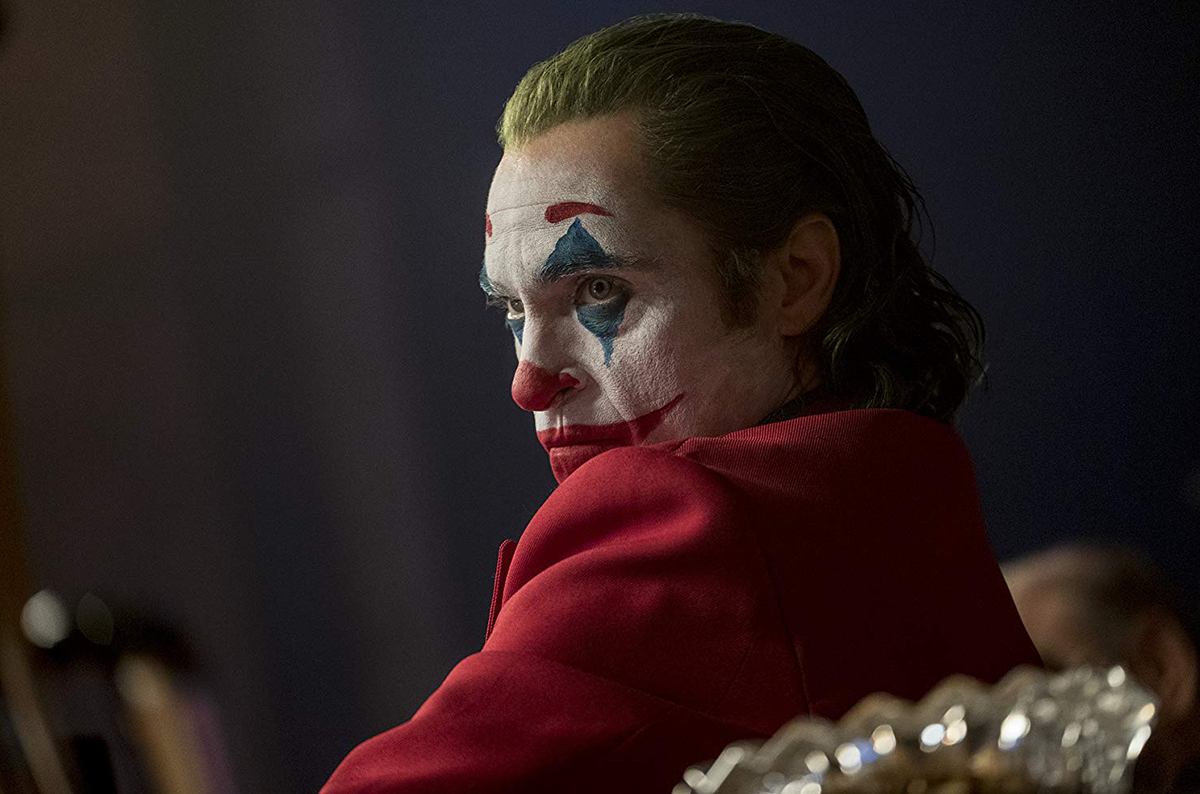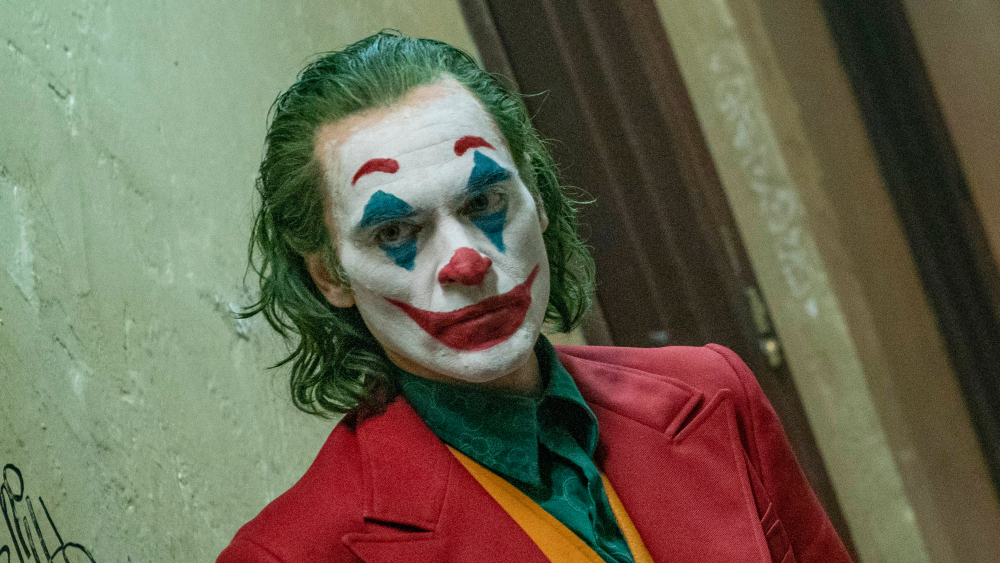- Home |
- Search Results |
- To be or not to be: how playing the Joker became America’s Hamlet

There’s a lot of Oscar buzz around Joaquin Phoenix’s guttural, nihilistic performance as would-be stand-up and accidental revolutionary Arthur Fleck in the relentlessly grim Joker. The film is far from faultless but it’s also totally dominated by his glowering, fractured, malevolent charisma.
For all the fair criticism of the film’s sour, slightly petulant attitude, Phoenix’s performance is worth the entry fee on its own, and is the clearest sign yet of what a blue riband role the Joker has become.
The Joker isn’t like most other film roles which change hands every so often – Sherlock Holmes, say, or James Bond. There is more cultural heft to which actor plays it, and how. The Joker cemented Heath Ledger’s place in the pantheon, gave Mark Hamill his second definitive role, and just the news of Phoenix’s casting sent waves far beyond the Batman fandom. The film’s director Todd Phillips has touched on one reason for this: “In the States, comic books are our Shakespeare it seems, and you can do many, many versions of Hamlet,” he said.
'They both speak truths while wearing masks, play with what can and can’t be done or said'
But the similarities go beyond the screen and the stage. Both Hamlet and the Joker have become parts with strong lineages – the part Richard Burbage played is the same John Gielgud, Laurence Olivier, Benedict Cumberbatch and so many others have wrestled with. They're commonly agreed yardsticks of acting talent. Audiences judge Hamlets and Jokers for their intensity and creativity in finding new notes to these established characters. Whether Hamlet ever actually is mad or just “mad in craft” is almost irrelevant; an actor still gets the chance to go demonstrate their range while, say, berating Ophelia or running rhetorical rings around Polonius.
That both characters gleefully lampoon social niceties makes them appealingly subversive, as does that tension between a giddy exterior and wracked interior. It’s the same pinballing between intense extremities that makes the roles – when done well - so impressive to anyone watching. Far fewer people have played the Joker than Hamlet, but it functions in the same way: as a litmus test for an actor’s command of their craft, with the expectation that their presence will dominate the drama.
It’s only since relatively recently that that’s been the case. Cesar Romero’s slightly camp Joker of the 1950s began to turn darker in the comics of the late 1970s. Then Alan Moore’s 1988 graphic novel The Killing Joke gave the Joker a definitively dark backstory – chemically disfigured failed comedian and widower who’d lost a child. While Jack Nicholson’s turn in Tim Burton’s 1989 Batman was much more broadly comic as well as unsettling, the combination turned the Joker into a trophy part.
“I was particularly proud of my performance as The Joker,” Nicholson told Esquire in 2015. “I considered it a piece of pop art.” The idea that the Joker could be a vehicle for sneaking something subversive and strange into multiplexes has stuck, and might explain why Phoenix – who’s never really been one for a knockabout superhero caper but likes the unexpected – and Ledger wanted the role.

'Both characters contain a tension between a giddy exterior and wracked interior'
For acting heavyweights like Nicholson, Ledger and now Phoenix it’s a virtuoso vehicle. Compare them to Jared Leto’s coolly received interpretation in Suicide Squad. His Joker didn’t resonate, perhaps because it didn’t exploit the unique potency the character has within American storytelling. The Joker has been a terrorist who “can't be bought, bullied, reasoned or bargained with,” tormenting a pseudo-New York seven years after 9/11, Ayatollah Khomeini of Iran gave him political asylum after murdering Robin with a crowbar in a 1989 comic story, and the impotent male rage of Phoenix’s Arthur Fleck echoes the more repellent and vindictive corners of the internet – though whether it critiques it properly is debatable.
He’s an unstoppable force to whom logic doesn’t apply, and as the arch-nemesis of Batman, the uber-wealthy bastion of conservative American values, he’s a potent all-purpose avatar of the sense that something is rotten in the States. Hamlet’s place in English storytelling is a little harder to plot, having been reimagined thousands of times over the last 400 years – but that’s perhaps the point. He’s an equivocal, morally compromised man, and different incarnations react to the moral unease of the time.
We may not still be dissecting the latest Joker’s take on the role in 2419. Shakespeare’s probably got the edge there. But the Joker, like Hamlet, transcends the drama he’s set within, and the actor playing the part matters.